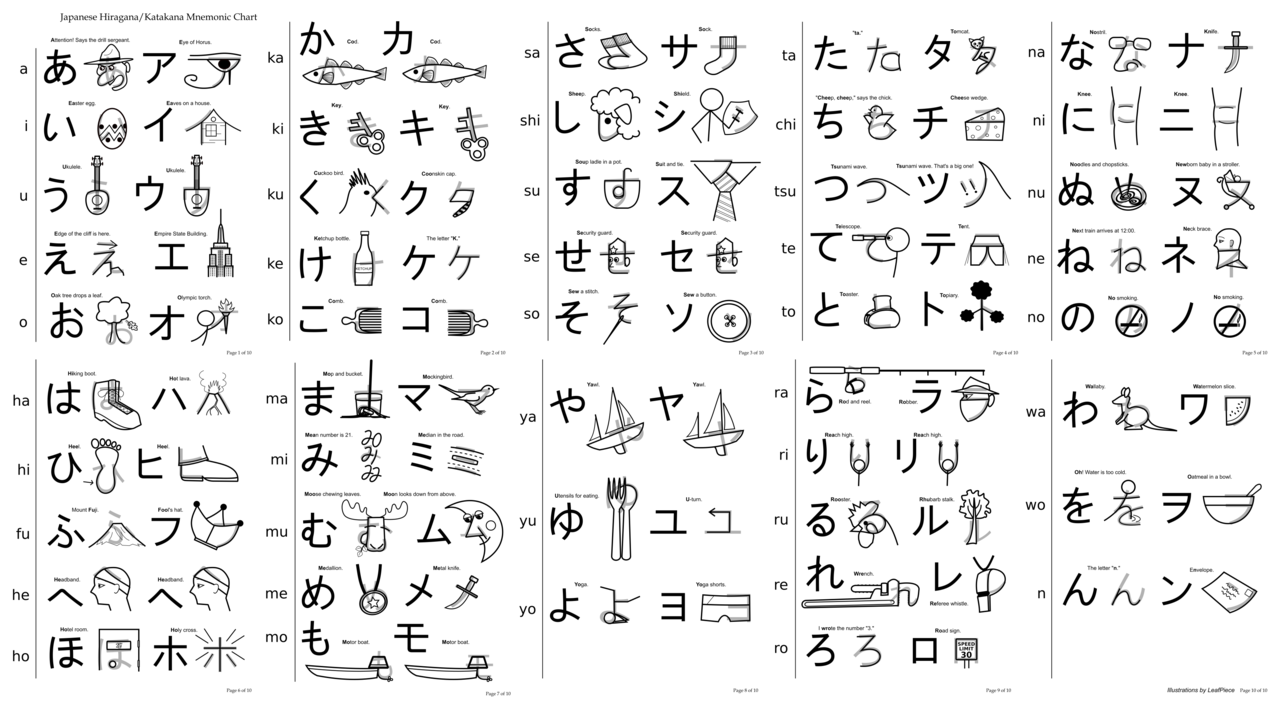Is the French Language Easy to Learn?
 by Admin
by Admin
 Share :
Share :

Est-ce que la langue française est facile à apprendre?
Could you catch anything? Don’t worry, it's the French translation of the topic of this blog.
However, you might be able to guess a few words from the sentence. Like ‘est’, which stands for ‘is’, and ‘langue’ which stands for language.
You must have noticed how the text of the French language is English. That should not be a surprise though, because English has evolved from Norman French during the Middle Ages. So, similarities between the two languages are inevitable. Which is why French is one of the easiest languages to learn.
How Many People Speak French?
Globally, English is the most spoken language- around 16.5% of people speak English. Though the survey also includes non-native speakers, English tops the list (Thanks to Colonization). Mandarin comes second with 14.6% of people speaking the language. Finally, Hindi emerges as the third most-spoken language in the world with 8.3% of speakers around the world.
While English has spread through history and trade, Mandarin and Hindi belong to the two most populous countries in the world.
This might indicate that there are fewer French speakers in the world. But surprisingly, French does manage to make it to the top 10 most-spoken languages in the world. It is the fifth most spoken language globally!
No, France is not a highly populous country. However, French is, in fact, a popular language. People across the globe either want to learn French, are learning, or see business potential in the language.
10 Most Spoken Languages in the World
- English
- Mandarin
- Chinese
- Hindi
- Spanish
- French
- Bengali
- Modern
- Arabic
- Portuguese
- Russian
- Urdu
Is It Easy to Learn French?
It is no cakewalk to learn a whole new language but French is not as hard as it seems. Although French grammar can be intimidating for beginners, it can be a breeze with regular practice.
When it comes to difficulty level, Mandarin and Arabic top the list. Attaining first and second place respectively.
Believe it or not, French does not even make it to the top ten! In fact, the language of love is one of the world’s easiest languages to learn, taking approximately 30 weeks at the beginner’s level.
The English language still carries traces of French. So, even if you are not a native English speaker, it is likely that you have been saying a few French words here and there. For instance, words like cafe, fiance, entrepreneur, and chic are French words!
Surprised?
There are more-
Common words like allowance, attache, and apostrophe, are all examples of French influence on the modern English language.
Time Taken to Learn Different Languages
We will start with the most difficult three-
Mandarin Chinese: 22 months to reach proficiency. With 50k signs, that should not be a surprise. Mandarin demands dedication and consistency, studying Mandarin 5 hours a day can help reach your goal.
Japanese Language: Taking the third palace is our admired the Japanese Language. There is so much beauty and delicacy put into Japanese culture. It is no wonder that the Japanese language requires dedication and practice as well. However, if you put aside an hour dedicated to learning the language for 6 months without a miss, you can easily survive in Japan.
Arabic Language: 8 months. Being the second hardest language to learn, the Arabic language requires around two hours daily for eight months to be proficient at the beginner’s level.
Now that we are done with the top 3 most difficult languages, we come to the top three easiest languages to learn.
French: Finally, we come to the world’s most romantic language in the world. One can learn a basic level of French in as short as one and a half months! For better proficiency though, one requires to dedicate at least an hour a day for a whole 30 weeks and they will be able to hold conversations with a native speaker.
Spanish: 3 months is sufficient for learning a basic level of Spanish with consistent practice. It becomes even easier for Native English speakers- there are similar words in both Spanish and English Languages, making it almost a breeze for native English speakers to learn.
Portuguese: It takes around two months to learn basic Portuguese, for proficiency though, it might take longer. However, around 30 minutes a day, and in two months, you will be ready to go on a solo trip to Lisbon!
- Mandarin/Chinese - 22 months
- Japanese - 6 months
- Arabic - 8 months
- French - 6 months
- Spanish - 3 months
- Portuguese - 2 months
Levels of French and Their Meaning
No language is easy to learn without consistent effort. Albeit the comparatively less time one takes to learn French, the language of romance has varying difficulty levels. Each level earns you a varying degree of job and career opportunities. These levels are judged by the proficiency of the learner.
According to CEFR (Common European Framework of Reference for Languages), there are three basic difficulty levels in French.
A: This is the certificate-level French proficiency. This is further divided into two more levels.
A1: The level at which the learner mostly discovers and begins to understand the language. It is the most basic level of French, also called the beginner’s level. A1 level French learner can do the following tasks:
- Can communicate openly if the other person is slow, polite, and ready to aid in the communication
- Can grasp and understand common phrases and expressions
- Can do a basic introduction, ask common questions and give simple answers.
A2: The A2 level learner is also called the elementary learner. A little more proficient than the A1 level learner, they can survive in a French-speaking nation.
They can-
- Can explain matters of immediate need in simple and direct terms
- Can exchange information
- Can identify and explain routines in basic French
B Level: A B-level French learner depends less on communication aids and begins to grow independent.
B1: The learner with an intermediate level of French proficiency. So, B1 learners are able to
- Can explain their experience to others
- Can understand fundamental points of precise standard inputs on matters they are familiar with.
- Can handle travel situations
- Can create texts on personal interest topics
B2: Here, the proficiency level improves significantly. The learner can:
- Understand the core points of a complex text
- Technical piece related to their field
- Can produce detailed explanations on diverse subjects.
- Can hold long, in-depth conversations with a native speaker.
C Level: Here comes the most advanced and difficult level of French. A C-level learner is undoubtedly better at and has a deeper knowledge of the language.
C1: Here, the learner is able to:
- Understand a variety of complex texts and their deeper meaning
- Can hold an in-depth and fleshy conversation with a native speaker
- Give detailed information and explanation regarding a variety of topics
- Can write and read in the language effectively.
C2: The best of the learners, who have gained experience and proficiency in French is regarded as C2 level learners. Here, the learner not only gains in-depth knowledge regarding the French language but also the French culture.
- They can hold deep, philosophical conversations with a native speaker
- They understand various references mostly known to a native French speaker
- Can differentiate between the precise meaning of words, situations, gestures, and phrases
- Can summarise information from various written and spoken sources
- With some practice, they can also be eligible;e for translation works.
Top 5 Reasons to Learn French
Now that you are familiar with the difficulty levels of the French language and the time it requires to learn the language, you may ask ‘why?’
There are plenty of reasons to learn a new language, but here are the top 5 reasons to learn French-
1) Better Career Opportunities
One of the chief reasons non-native speakers opt for French is the fact that learning French can open door to a variety of private as well as government jobs. The better your proficiency level, the easier is it for you to land a job with your dream salary. From translations to education, there is a window always open
2) A Language of Culture
Not just food, the French people take pride in their rich culture and heritage. Literature, Art, Theatre, you name it and you shall find at least one prominent French name in each and more of these. Learning French would open doors for you to experience this rich culture without the aid of translations. And experiencing the original is always the finest.
3) Better Education Opportunities
When it comes to renowned universities, French-speaking nations like Canada and France stand out. It would be a loss to miss the opportunity to study at one of the world’s most prestigious universities. And Learning French can help you avoid loss.
4) Why Miss a Trip
Let's admit it, we all wish to visit Paris and sip a cup of coffee with a warm croissant on our plate while we watch the Eiffel tower. Yet, the language barrier can be intimidating. Learning French can not only break the language barrier but also ease your travel experience. So, why not learn the language?
5) Translation is Not Enough
Any literary lover would agree that while translations of literary texts have helped cross over boundaries and break the language barrier, reading the original text, in its authentic language is an experience of its own. If you can’t wait to fall in love with French Literature, it is better to start learning the language now. A whole new literary world is waiting.
Job Opportunities for French Speakers
Learning the French language opens the door to a variety of job opportunities that would not only help in your career but might also aid in your personal growth. Here are some of the job opportunities that learning French would bring you.
1) Foreign Embassies
With over 25 French-speaking nations worldwide, French is one of the most widely spoken native languages in the world. You can apply for a variety of jobs at foreign embassies in your country. Working in foreign embassies will ensure expense and exposure to a multicultural environment.
2) Useful in the Hospitality Industry
In luxury hotels and restaurants, being exposed to various cultures and foreign natives is common. What would make you stand out, if you wish to build a career in the hospitality industry, is your proficiency in a foreign language. Learning French can not only help you grab the opportunity to work with a reputed hospitality brand but also gain experience in the practical use of the language as a learner.
3) Career as a Corporate Trainer
The French language is the most taught foreign language in India. And not just for academic reasons. There are, in fact, various companies that provide their employees and trainees with on-site French learning training. You can better your French language while teaching them and gain experience in teaching the language, which will further your career.
4) Import and Export Business
In recent years, India has emerged as one of the fastest-growing exporters in the world. With closer diplomatic ties with France, the two nations are expected to boost their import and export soon. Learning French will not only help you land a better-salaried job in this industry but can also aid your own import-export business.
So, are you ready to learn French and experience a whole new world?
Related Blogs:
Is Spanish Easy to Learn?
Undoubtedly, learning a foreign language can do wonders for one’s career. For this very reason, students have been increasingly interested in Spanish. Not only is Spanish the second most spoken ...
Read moreIs Japanese Easy to Learn?
yxzJapanese can be considered a difficult language to learn for native speakers of English. This is because Japanese has a unique writing system, consisting of three scripts: hiragana, katakana, and k...
Read moreIs German Easy or Difficult to Lear...
German is considered a relatively difficult language to learn for native English speakers. It is a member of the Germanic branch of the Indo-European language family, which means that it shares some s...
Read more
Find the Best Tutors for All Your Learning Needs
We provide tutors for all academic subjects, extracurricular activities, and foreign languages. Our tuition caters to all boards of education- CBSE, ICSE, IGCSE & IB. At Auriv Learning, anyone can learn anything.
Book a Demo






 Auriv Learning Kerala, India
Auriv Learning Kerala, India +91 95673 18555
+91 95673 18555  info@aurivlearning.com
info@aurivlearning.com